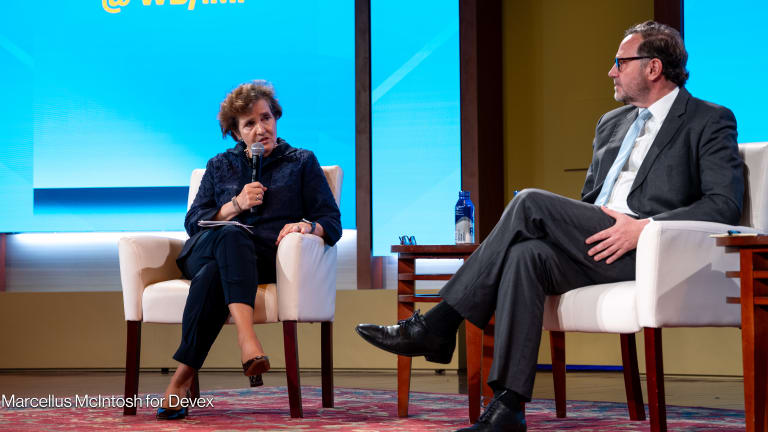Earlier this week, the White House named Alonzo Fulgham acting administrator of the U.S. Agency for International Development. But that hasn't stopped rumors about other candidates for his and other top U.S. aid jobs. Here's who we hear is in the running:
For USAID:
Gayle Smith, senior fellow at the Center for American Progress, is said to be one of the leading advocates for a Cabinet-level position dedicated to foreign assistance. If she gets the job, the aid bureaucracy could change dramatically. The question is: Does Team Obama want such a shake-up?
Helene Gayle worked as the director of the Bill & Melinda Gates Foundation's HIV, TB and Reproductive Health program before joining Care International, which she now serves as president and CEO. Before that, she was at the Centers for Disease Control and Prevention, so she has government, if not Washington, experience (CDC is based in Atlanta).
Nils Daulaire, president and CEO of the Global Health Council, holds an M.D. from Harvard Medical School and a Master's in Public Health from Johns Hopkins University. He also knows how USAID works - he was there for five years under Clinton, working as deputy assistant administrator for policy and senior international health policy adviser.
Aaron Williams, senior vice president at RTI, is said to be up for deputy administrator.
The Foreign Policy magazine’s blog The Cable also mentions International Rescue Committee chief George Rupp and former Arizona Congressman and German Marshall Fund Fellow Jim Kolbe for USAID.
And then, there's Alonzo Fulgham. He's already there. If he does good work (and has paid his taxes), a confirmation might be a cakewalk.
For MCC:
Nancy Birdsall, founding president of the Center for Global Development, should know how to deal with fledgling organizations eager to find their footing in the midst of dramatic change.
Steve Radelet, senior fellow at CGD, has worked all over the world. He might be a good choice if the agency is looking to make a transition, as he's made many himself.
There are a number of issues any new administrator will have to deal with. We think most of their efforts will be dominated by these:
Should a Cabinet-level aid position be created? An aid czar working out of the White House? Or should the status quo remain? The former two options could have major implications on the way development work is done. Keeping things the way they are creates its own unique challenges, as the transition from the Bush bureaucracy to the Obama bureaucracy is likely to be a time-consuming and at times confusing one.
What happens to MCC? Obama has already shown his distaste for many of Bush's policies - see Guantanamo. But in many camps, Bush's development efforts were considered a success. Should Obama keep this Bush construct? And if he decides to keep it, should it remain independent or be swallowed by the State Department?
What are you hearing? What is your take on who should be the top dogs, and how Obama should confront the issues before him? Share your thoughts in the comments or with me at david.francis@devex.com. Anonymity promised.








